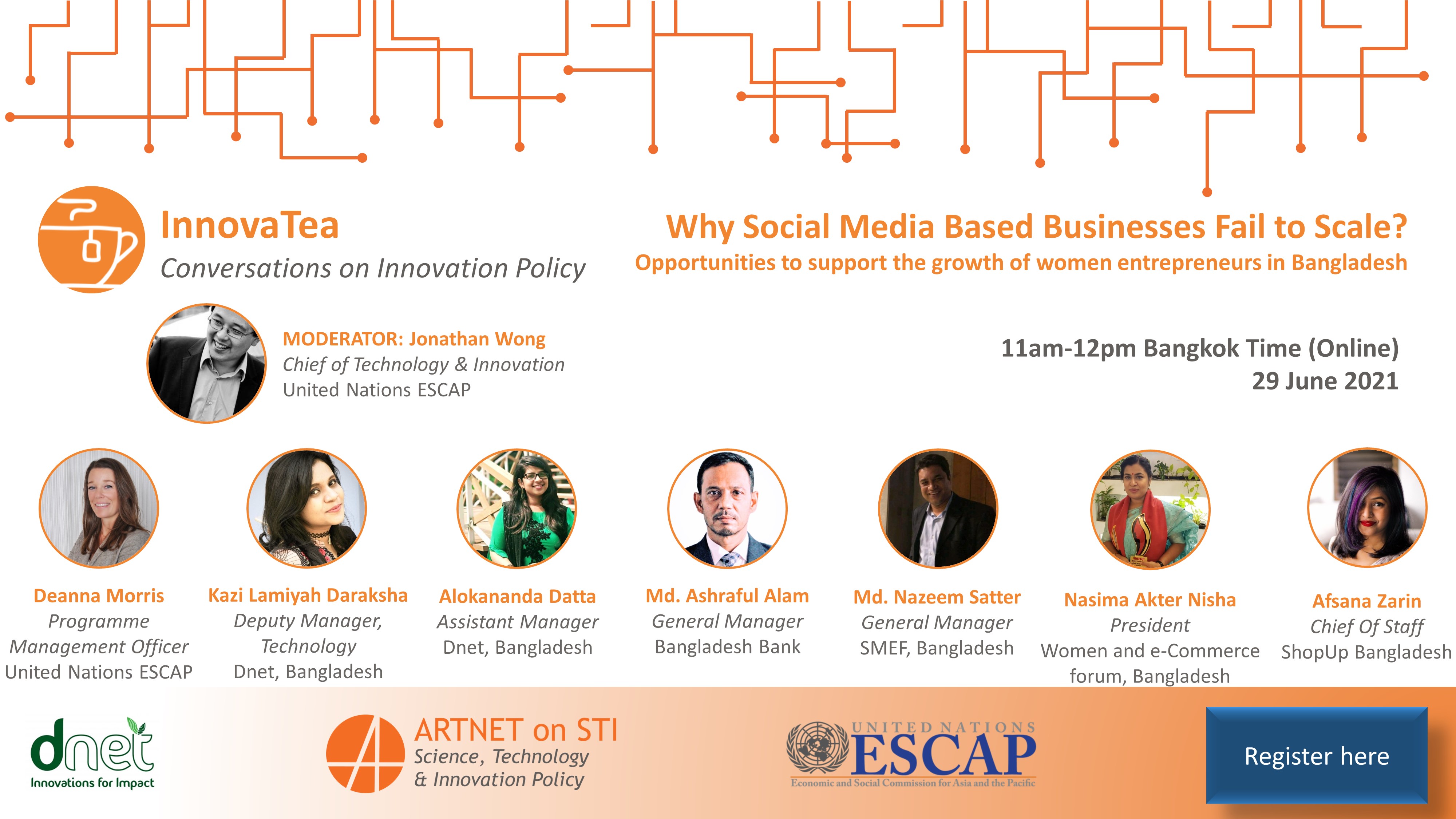Second ARTNETonSTI Conversation: Why Social Media Based Businesses Fail to Scale? Opportunities to Support the Growth of Women Entrepreneurs in Bangladesh
Micro, small and medium-sized enterprises (MSME) make a significant contribution to economic growth and job creation across Asia and the Pacific. The COVID-19 pandemic has severely impacted MSMEs, with many left struggling to survive. However, digital platforms and social media channels have allowed many entrepreneurs to reposition their business models and shift to the online marketplace. This trend is not only due to the pandemic – in Bangladesh, social media-based entrepreneurs were thriving before the pandemic ever started. However, many faced challenges – the challenge was not necessarily starting-up a business, but scaling-up once the business became well established.
Over the past six months the United Nations Economic and Social Commission for Asia and the Pacific (ESCAP) has partnered with Dnet Bangladesh to undertake primary research on women social media-based entrepreneurs in Bangladesh to understand why women entrepreneurs are specifically struggling to scale-up their online businesses. The research aimed to shed light on the situation, challenges, and support requirements for online women entrepreneurs to start and scale their business. The research also provides recommendations and actions to support women entrepreneurs in overcoming these challenges.
The study used a randomized sampling methodology, surveying and interviewing over 150 social media-based women entrepreneurs in Bangladesh. The findings allowed for a deeper understanding of what triggers success and failure, encountered social barriers and enabling policies and procedures which can support women entrepreneurs to thrive.
This session will launch the preliminary findings of the report as well as engage industry leaders and decision makers to discuss those findings and what solutions are needed to support entrepreneurs to scale in Bangladesh’s online marketplace.
Key findings and topics will include:
- Three-quarter of social media-based women entrepreneurs have no business registration. How can we accommodate and support unregistered entrepreneurs to further grow their business and what solutions or incentives are needed to inspire business registration?
- The median start-up capital of social media-based businesses was only BDT 5,000 (US$ 59). For investment, women entrepreneurs relied on personal savings and family support to some extent. Only 8 per cent sourced capital from financial institution. What financial products and innovations are needed to better serve the needs of women-run businesses at the start-up and scale-up stage?
- Half of social media-based women entrepreneurs face challenges in managing customers (mainly cancelation of orders and absence at the delivery point). Furthermore, there were product delivery delays to customers by the delivery channels, reluctance to carry some products (e.g., glass-made goods, pickle, fish, etc.) and no delivery services in semi-urban and rural areas. Moreover, many entrepreneurs faced inventory mismatch while receiving products from their suppliers. What solutions are needed to better address the customer and supply chain-related barriers which are hindering women entrepreneur’s business expansion?
- One-third of social media based online women entrepreneurs faced abuse online, including becoming the victim of hate speech, violent dialogue and fake information. How can online women entrepreneurs be protected from online violence and how can organizations support them to continue and grow their businesses?
More information on ARTNETonSTI Conversations here.
29 June 2021
Virtual event, 11:00 - 12:00 Bangkok time (check your time)

Dnet presentation on social media women entrepreneurs

